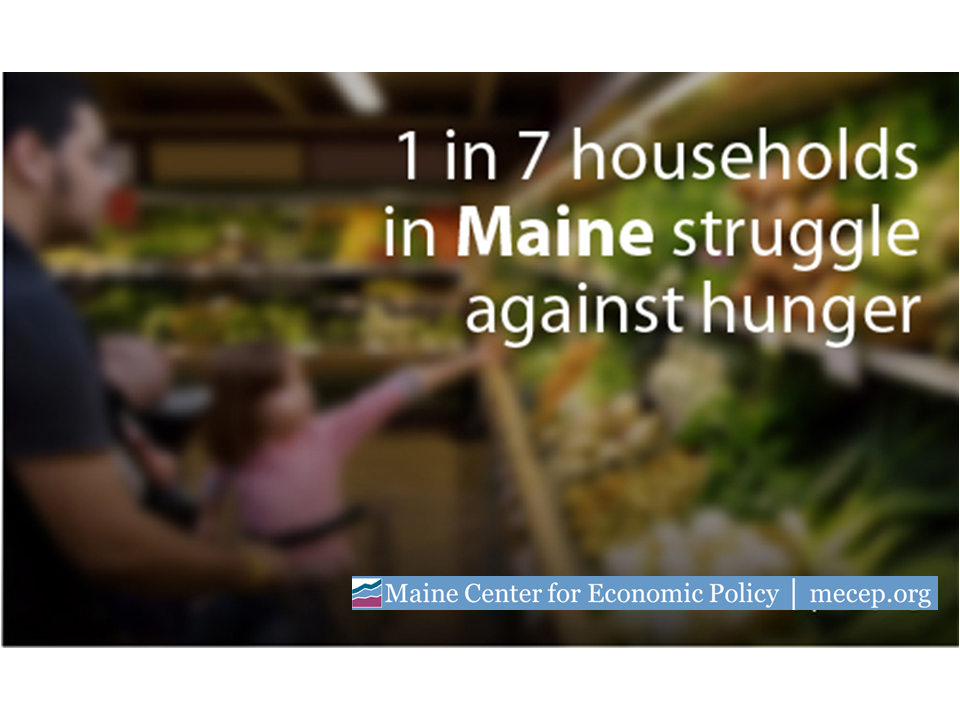A new report from the Center on Budget and Policy Priorities (CBPP) provides further confirmation of a depressing trend—hundreds of thousands of Mainers remain impoverished and food insecure. The LePage administration’s solution? To deny these individuals access to important programs like the federally-funded Supplemental Nutritional Assistance Program (SNAP, formerly food stamps). In 2014, Maine began imposing strict work requirements on SNAP recipients, which reduced the number of enrolled adults, but did nothing to prevent these Mainers from hunger.
The report shows that while more than 200,000 Mainers gain much-needed financial assistance to purchase food through SNAP, thousands more Mainers suffering food insecurity go unaided. The Good Shepherd food bank reports that more than one in three food insecure individuals don’t qualify for SNAP. That 100% of the eligible population participates in Maine’s program shows that the need is real, and acute. Maine’s poverty rate—and consequently the SNAP participation numbers—has remained stubbornly high since the start of the recession. The recent decline in individuals receiving SNAP is due primarily to the rules enforcement.
 Tightening eligibility requirements for safety net programs may make for effective political rhetoric, but it doesn’t feed hungry Mainers. SNAP’s safety net is vital to many families, and CBPP estimates the program kept nearly 50,000 Mainers from falling below the poverty line.
Tightening eligibility requirements for safety net programs may make for effective political rhetoric, but it doesn’t feed hungry Mainers. SNAP’s safety net is vital to many families, and CBPP estimates the program kept nearly 50,000 Mainers from falling below the poverty line.
Food security is also critical for families to work their way out of poverty. It ensures that adults can be productive workers, and that children can perform well in school. SNAP is also an investment in our economy, as well as our neediest families. It acts as a stimulus, boosting demand for family essentials, and paying the salaries of grocery store workers. Moody’s Investors Service, a leading financial research and analysis agency, estimates that every dollar of SNAP funding generates an additional $1.78 in economic activity—that’s $280 million for Maine.
Nobody wants to depend on food stamps indefinitely, but for families to become self-sufficient, Maine needs more opportunities to help the hundreds of thousands living in poverty, and that means making investments that grow our economy and provide good-paying jobs. While household incomes and employment numbers are still below pre-recession levels, it’s no wonder that many Mainers still struggle to make ends meet. If Mainers vote in 2016 to raise the minimum wage, that will be a good start. But what Maine really needs is an administration focused on nurturing prosperity, instead of punishing the poor.



